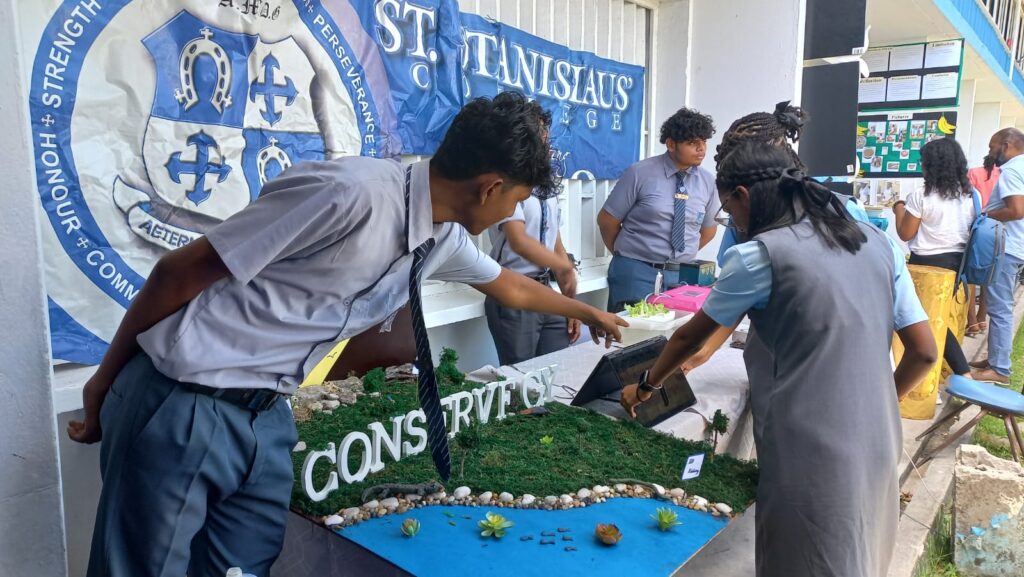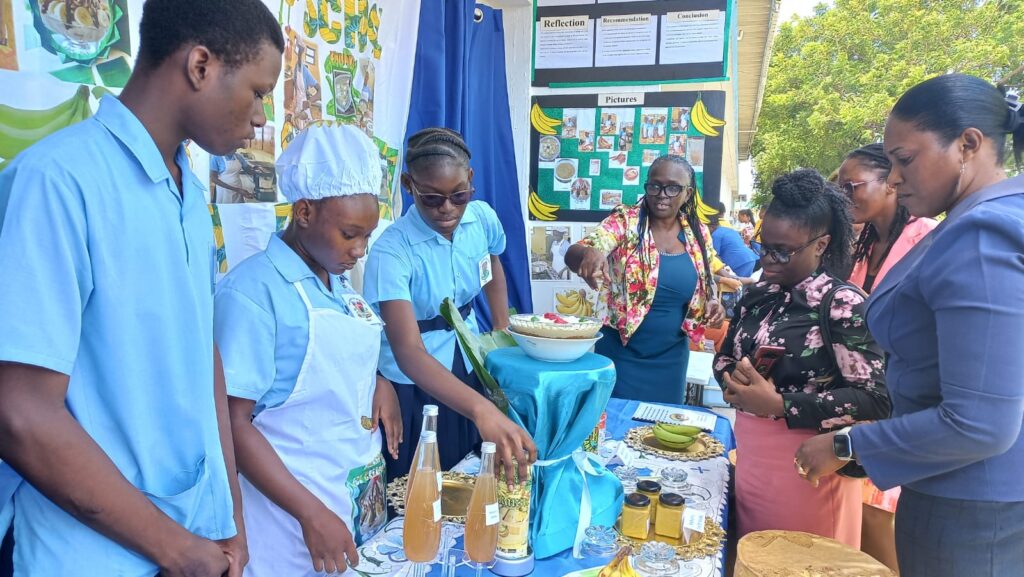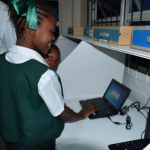
The 16th Biennial Georgetown Department of Education’s Science, Technology, Engineering, Arts and Mathematics (STEAM) Fair opened today at the St Joseph’s High School.
Under the theme “Innovative Solutions through STEAM for Sustainable Development in Guyana,” the fair attracts schools from nursery right up to secondary, with a total of 63 projects on display.
The students are competing in the five thematic areas.
Assistant Chief Education Officer (ACEO) with responsibility for Secondary Education, Sherwin Blackman said the fair provides students with the opportunity to come up with innovative solutions to aid in the development of the country.
“Many a times we have projects, and we have seen this over the years where students manage to create that actually come with a high level of sustainability. We have seen projects over the years in Mathematics that schools have actually used to help them to teach Mathematics differently. And this year, I have seen some of the pieces coming from the other regions that have concluded their activities, for example Region Five, and I have seen some pieces from Region Three, where students demonstrated yet again even at the primary level that they can, with their teachers, come up with very creative ways in displaying, correcting, changing, improving some aspects of education or some aspects relating to development of their country,” Blackman said.

Queen’s College is among the schools participating in the Fair. Presenting flavors of Queen’s, Ashley James and Oniela Thomas told News Source they are promoting nutritious, diet-friendly alternative pasta and noodles.
“We would have made pasta and noodles from alternative flour. The whole idea is that we want it to be inclusive, so people with gluten intolerance, gluten allergies, we want them to be able to consume this kind of pasta. Not only that we want to give me a healthier alternative to regular white flour pasta,” James explained.
Meanwhile, Alex Boyce of North Georgetown Secondary demonstrated how rice straw can be used to trap oil in the event of an oil spill.
“In a nutshell, we aim to reduce the burning of rice straw because in rice farming, after they harvest the rice, the rice straw is left there and they tend to burn it to clear the fields faster so they can replant again. We aim to reduce that because of course when you burn it aids global warming with pollution, and we don’t want that. So we are just trying to reduce the burning of it, and instead of wasting the rice straw, we are going to use it to absorb oil in oil spills for oil spill remediation,” Boyce explained.

The winners of this regional competition will move on the national STEAM competition.











You must be logged in to post a comment Login